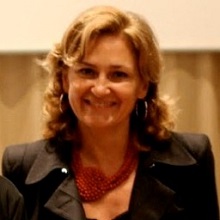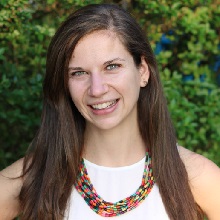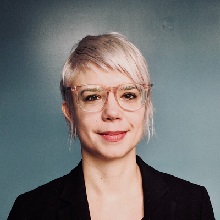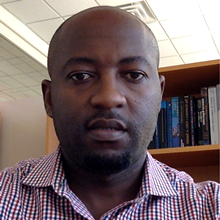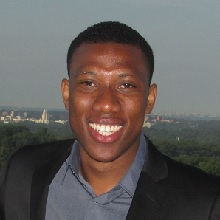
IsDB-World Bank DIME Impact Evaluation Event: Transforming Development through Evidence-Based Policy
January 29-31, 2019
Dakar, Senegal
-
From January 29-31 the Development Impact Evaluation Unit (DIME) of the World Bank launched its new impact evaluation programs with the Islamic Development Bank and the World Food Programme as part of DIME’s effort to expand the use of data analytics and evidence-based methods in partner agencies.
During the Dakar Workshop on Transforming Development through Evidence-Based Policy we worked with 60 policy makers from francophone West Africa to develop impact evaluation research aimed at identifying ways to increase the rate of return to their planned investment projects across the Sahel.
The the workshop's main objective was to provide support to IsDB staff and Government Officials towards improving the design of their programs and using rigorous evidence to achieve better program results by learning how to make interventions work.
The workshop used six (6) IsDB financed projects that constituted a concrete basis of case studies and hands-on experimentation. The workshop served to:
- Enhance the capacity of IsDB staff and client government officials and counterparts to design rigorous Impact Evaluations (IE) through hands-on training on IE concepts, objectives, techniques, methods and management.
- Develop a high-quality IE design and implementation plans for each selected project through targeted clinic sessions bringing together project teams, country counterparts, and IE Experts. Each plan will be the basis for a program of technical assistance to help projects conduct an IE and use resulting evidence to make policy decisions.
-
Tuesday (January 29)
8:00 - 9:00AM
Inscription et test de connaissances (pré)
(Registration and Knowledge Test (Pre))9:00 - 9:30AM
Allocution d'ouverture
(Opening remarks)
Sidi Oul Taled, IsDB Manager Dakar Regional Hub, Islamic Development Bank9:30 - 10:15AM
L’évaluation d’impact pour l’apprentissage en temps réel et l’influence des politiques publiques (Impact Evaluation for real-time learning and policy influence)
Arianna Legovini, Development Impact Evaluation (Head of DIME), World Bank10:15 - 10:30AM
Discussion
10:30 - 10:45AM
Coffee break
10:45 - 11:45AM
L’évaluation d’impact en pratique: ajouter de la valeur durant toutes les phases du projet
(Impact Evaluation in practice: adding value across all phases of project cycle)Cette session contiendra des exemples du portefeuille de DIME: des exemples d’évaluations d’impact; de génération de systèmes de données et d’évidence; de renforcement de capacité locale et de systèmes de suivi de projet ; et d’influence des politiques publiques.
(This session will provide examples from DIME’s portfolio of IE: examples of IE work; generating data and evidence; building capacity and strengthening monitoring systems; influencing policy decisions.)
Chair: Ababacar Gaye, Banque de Développement Islamique
- Développer la fonction d’inspection sanitaire pour améliorer la sécurité du patient
(Developing the health inspection function to improve patient safety)
Arianna Legovini, Development Impact Evaluation (Head of DIME), World Bank - Système de données à l’échelle nationale pour comprendre les changements ruraux
(Country-wide data ecosystem to understand rural restructuring)
Theophile Bougna, Economist, DIME, World Bank
11:45 - 12:00PM
Discussion
12:30 - 1:30PM
Lunch
1:30 - 2:45PM
Mesurer les impacts I: Inférence cause et m’méthodes quasi expérimentales
(Measuring Impact I: Causal Inference & Quasi-Experimental Methods)
Alice Duhaut, Economist, DIME, World BankCette session introduira les concepts de causalité et de méthodes quasi-expérimentales. Elle couvrira des sujets comme l’inférence causale, différence dans la différence, appariement des coefficients de propension et de discontinuité de la régression.
(This session will introduce causality and quasi-experimental research methods. Topics covered include causal inference, difference-in-differences, propensity score matching, and discontinuity design.)
2:45 - 3:00PM
Coffee Break
3:00 - 5:30PM
Travail de groupe: Session 1 (Group Work: Session 1)
Les équipes de projet travaillent en équipe sur leur évaluation d’impact, facilité par le chef de projet et les chercheurs.Durant cette session, le groupe établira la chaine de résultats attendus et les questions de recherche pour leur projet.
(Project teams work on their impact evaluation, facilitated by project team leaders and researchers.)
Wednesday (January 30) Workshop Day 2
9:00 - 10:30AM
Mesurer l’impact II: Méthode expérimentale et cas pratiques
(Measuring Impact II: Experimental Methods and Practical Case Study)
Theophile Bougna, Economist, DIME, World BankCette session introduira la méthode expérimentale. Elle couvrira l’évaluation d’impact, l’inférence causale et la randomisation.
(This session will introduce experimental methods. Topics covered include impact evaluation, causal inference,
and randomization.)10:30 - 10:45AM
Coffee Break
10:45 - 12:00PM
Présentations (Lightning Talks)
Chair: Ismaeel Ibrahim Naiya, Lead Economist, Islamic Development Bank
- Agriculture - Samba Mbaye and Serge Adjognon
- Transport - Alice Duhaut and Illenin Kondo
- Health – Sacha Dray and Paula von Haaren
Cette session donnera des exemples sur la façon dont un plan de recherche rigoureux nous permet de dépasser les défis d’implémentation. Elle couvrira des exemples d’agriculture, du transport et de la santé.
12:00 - 12:15PM
Discussion
12.15 - 1.45PM
Lunch
1:45 - 2:45PM
Mesurer l’impact III: Échantillonnage et calcul de puissance
(Measuring Impact III: Sampling and Power Calculations)Serge Adjognon, Economist, DIME, Banque Mondiale
Cette session introduira les sujets de l’échantillonnage, la randomisation et le calcul de puissance.
(Introduction of the concepts of sampling, randomization, and power calculations.)2:45 - 4:00PM
Travail de groupe: Session 2 (Group Work: Session 2)
Durant cette session, le groupe travaillera sur la stratégie d’identification, les indicateurs de résultats et les données qui seront utilisés pour chaque question de recherche
(In this session, the group will discuss the identification strategy, outcome indicators, and datasets that will be used to answer each research question.)4:00 - 4:15PM
Coffee Break
4:15 - 6:00PM
Travail de groupe: Session 3 (Group Work: Session 3)
Durant cette session, le groupe travaillera sur l’implémentation pratique du plan d’évaluation d’impact, dont le budget, la ligne du temps et l’équipe disponible. En outre, le groupe préparera la présentation du jour suivant.
(In this session, the group will work on the practical implementation plan of the impact evaluation including budget, timeline, and staffing. They will also work on their presentations for the day after.)Thursday (January 31) Workshop Day 3
8:30 - 9:30AM
Les équipes finalisent leurs présentations. (Teams Finalize Presentations)
9:30 - 10:00AM
Test de connaissance (Post)
(Knowledge Test (Post))10:00 - 11:15AM
Présentations: Exploiter les systèmes de données pour le développement
(Lightning Talks: Harnessing data systems for development)Cette session donnera des exemples de données innovantes pour supporter les évaluations d’impact et la prise de décision.
(This session will provide examples of how innovative data can be used to support rigorous impact evaluation and policymaking.)Chair: Idrissa Dia, Strategic Coordinator, Vice- Presidency for Country Programs & Operations, Islamic Development Bank
- L’imagerie satellite pour mesurer l’activité économique locale et la croissance
(Using Satellite Imagery for Measuring Growth and Impact of Corridors )
– Alice Duhaut, Economist, DIME, World Bank - Imagerie satellite et agriculture
(Satellite Imagery and Agriculture)
– Serge Adjognon, Economist, DIME, World Bank - Utiliser des donnes crowdsourcées pour l’évaluation d’impact au Kenya
(Using Crowdsourced Data for Impact Evaluation in Kenya)
– Theophile Bougna, Economist, DIME, World Bank - Collecter des donnes à hautes fréquence pour un registre des traumatismes au Malawi
(High-frequency Trauma Registry Data Collection in Malawi)
– Sveta Milusheva, Economist, DIME, World Bank - Utiliser les données télécoms pour la décision
(Using Telecom Data in Policy Work)
– El Hadji Birahim Gueye, Head of IT Innovation Lab, Sonatel
11:15 - 11:30AM
Discussion 11:45 - 12:45PM
Plans d’évaluation d’impact: Présentations de groupe I
(Impact Evaluation Designs: Team Presentations I)Les équipes présentent leur plan pour l’évaluation d’impact de leur projet (10 min. par groupe).
Les questions et les commentaires se font à la fin des présentations.
L’ordre des présentations sera communiqué à l’avance(Teams present their evaluation design (10 minutes per team)
Questions and Comments are answered at the end.
Order of presentations to be provided prior to the panel)
12:45-1:45PM
Lunch
1:45-2:45PM
Plans d’évaluation d’impact: Présentations de groupe I II
(Impact Evaluation Designs: Team Presentations II)Les équipes présentent leur plan pour l’évaluation d’impact de leur projet (10 min. par groupe).
Les questions et les commentaires se font à la fin des présentations.
L’ordre des présentations sera communiqué à l’avance
(Teams present their evaluation design (10 minutes per team)
Questions and Comments are answered at the end.
Order of presentations to be provided prior to the panel)2:45-3:15PM
Remarques de clôture (Closing Remarks)
Arianna Legovini, Development Impact Evaluation (Head of DIME), World Bank
Sidi Oul Taled, IsDB Manager Dakar Regional Hub, Islamic Development BankSupport Staff at the Workshop:
- Silvia Velez Caroco, DIME, Word Bank: Analyst
- Développer la fonction d’inspection sanitaire pour améliorer la sécurité du patient
-
